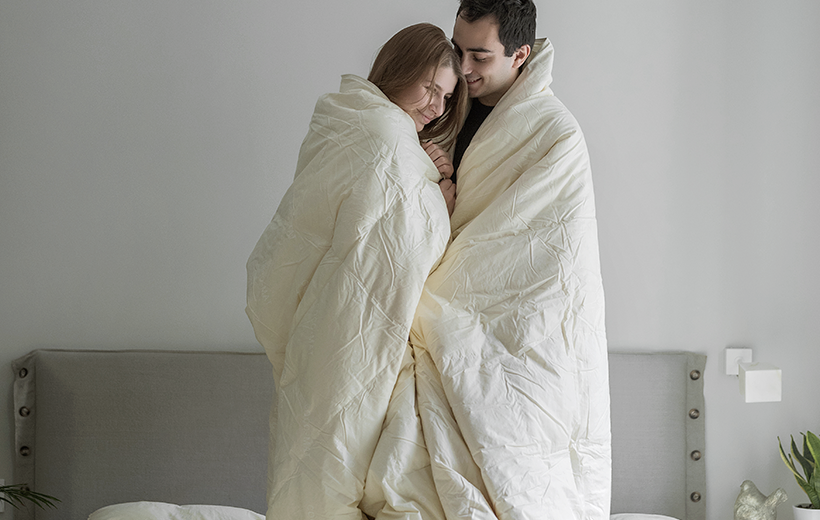How often do we hear from those around us, or have we felt ourselves, that our sleep immediately becomes better when we sleep in our arms with our loved one, with our pet, or even with our favorite pillow?
The common denominator in this collective need to "sleep in arms" is the difference it makes to our brains and subsequently our bodies.
Specifically, research has shown that:
- During cuddling, oxytocin is produced, a hormone that has been defined several times as the "love hormone". Biologically, this hormone plays an important role since its secretion contributes during childbirth to the expansion of the uterus and during breastfeeding, to the secretion of milk from the mother's breast. It is a hormone that is quite essential for our survival from the very first stages of our entry into this world, and it seems to be secreted at an equally important rate even in people who may not actively participate in the process of birth or in the maternal relationship. , however, they may participate in a parental relationship, but also in general any activity that includes the element of care seems to lead to the secretion of this hormone that is valuable for our mental health.
- Cuddling while sleeping reduces cortisol levels. Here, another hormone comes to the fore, the one that is also called the "stress hormone" and plays an active role in almost all the functions of the human body. Cortisol is also necessary for our survival, but for different reasons. It is the hormone that mobilizes us when there is danger, that gives us the "energy" to get out of bed and be functional and productive during the day, the hormone that made our ancient ancestors run, seeking shelter and protection when they were being chased by bears in the forest.
However, when its levels increase, cortisol tends to become dangerous to our health and tends to increase when stress levels in our lives also increase, either due to some major life-changing event such as loss, separation, or pandemic or due to a combination of stressors that start from simple moments in our everyday life. When cortisol becomes threatening, it can cause cardiovascular disease, obesity, depression, and various other medical or psychological problems.
So you understand how therapeutic the power of a hug is during sleep and how many its benefits are.
From Kundera who at
his book The Unbearable Lightness of Being defines love “more as
the desire for shared sleep rather than courtships”, until the painting “Le
lit” by Toulouse-Lautrec depicting a couple sleeping together under
the blanket, it seems that shared sleep has been the mental refuge
of many humans perhaps from the earliest stages of the evolution of our species.
The psychologist-psychotherapist, Virginia Satir said that: "We need 4 hugs a day for survival, 8 hugs a day for maintenance, and 12 hugs a day for growth."
A hug that lasts?
all night, how much good can it bring to our lives?
Mayra Zarentis, Psychologist (MSc) & Author
email: [email protected]
